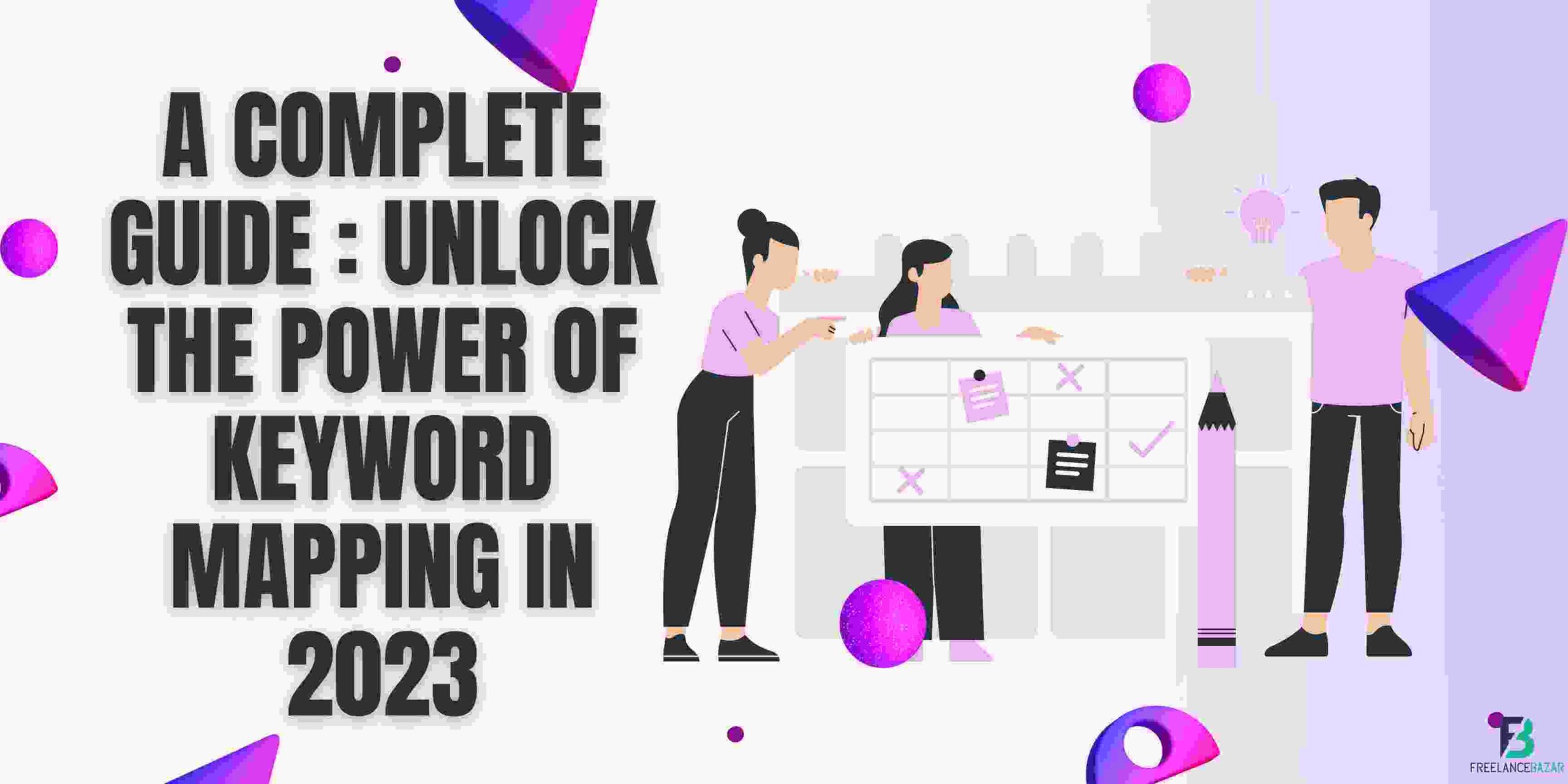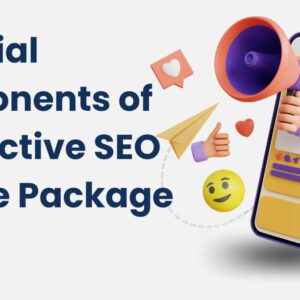In the ever-competitive digital landscape, search engine optimization (SEO) is a fundamental strategy to enhance a website's visibility and attract organic traffic. The significance of SEO relies heavily on keywords, which are the specific words and phrases people use in search engines to find desired information, products, or services. Effectively mapping keywords across your website can significantly impact your search rankings and drive targeted traffic to your pages. In this comprehensive guide, we will explore how to map keywords strategically across your website for optimal SEO performance. Improve your website's search engine visibility with Freelancebazar. Our expert team can assist you in strategically optimizing your map keywords across your website, ensuring higher rankings and increased organic traffic. Boost your online presence today with our proven SEO solutions.
1. Conduct Keyword Research:
Before you start mapping keywords, it's essential to conduct thorough keyword research. Find appropriate keywords and phrases that correspond with the content, products, or services offered on your website. Use keyword research tools such as Google Keyword Planner, SEMrush, or Ahrefs to discover high-volume, low-competition keywords that your target audience is using to search for your offerings.
2. Organize Keywords by Content Themes:
Categorize your keywords into content themes or topics. This step helps you create a cohesive structure for your website and ensures that each section targets specific keyword groups. For example, if you have an e-commerce website selling shoes, you might have content themes like "running shoes," "casual shoes," and "athletic footwear."
3. Map Keywords to Website Sections:
Once you have organized your keywords into content themes, map them to relevant sections of your website. Assign primary and secondary keywords to each section, keeping in mind the relevance and user intent. For instance, the "running shoes" content theme would be mapped to your website's "Running Shoes" product category page and related blog posts.
4. Optimize Homepage:
Your homepage is the most crucial landing page on your website. Map high-priority and broad keywords that represent your overall brand and offerings to your homepage. Be concise and strategic in incorporating these keywords into your headline, meta tags, and content to improve your website's overall SEO value. Our platform offers expert guidance and tools to optimize your website's map keywords for better search engine visibility. Boost your online presence and attract more targeted traffic with our proven strategies. Start optimizing your map keywords today with Freelancebazar!
5. Utilize Target Keywords in Meta Tags:
SEO relies heavily on meta tags such as title tags and meta descriptions, as they play a vital role in boosting visibility and search engine rankings. These tags provide search engines with concise information about your pages. Incorporate target keywords naturally into your meta tags while maintaining clarity and enticing language to encourage click-throughs.
6. Create Unique Landing Pages:
If you have multiple keyword themes and a wide range of offerings, consider creating unique landing pages for each theme. These dedicated pages allow you to focus on specific keywords and provide valuable, in-depth content to visitors. Ensure each landing page aligns with the targeted keyword and offers relevant information or products.
7. Optimize URLs:
Include target keywords in your page URLs to enhance their SEO value. Clean and keyword-rich URLs improve user experience and make it easier for search engines to understand your page content. Avoid long and complex URLs, instead opting for short, descriptive ones that include the primary keyword.
8. Integrate Keywords in Heading Tags and Content:
Use target keywords in heading tags (H1, H2, etc.) and throughout your content naturally. Heading tags help search engines comprehend the structure and hierarchy of your content, while keyword-rich content signals relevance to user searches.
9. Implement Image Alt Text:
Search engines cannot interpret images, so it's crucial to optimize your image alt text with relevant keywords. Descriptive alt text not only improves accessibility but also signals the relevance of images to search engines, potentially increasing your chances of ranking in image search results.
10. Monitor and Update Regularly:
SEO is an ongoing process. Utilize tools such as Google Analytics and Search Console to consistently track the performance of your keywords. Analyze which keywords are driving traffic and conversions and which ones may need adjustments. Update your keyword mapping strategy as your business evolves and search trends change.
Conclusion
Mapping keywords across your website is a critical step in optimizing your SEO efforts and improving your online visibility. By conducting thorough keyword research, organizing keywords by content themes, and strategically incorporating them into your homepage, meta tags, URLs, and content, you can attract targeted traffic and reach your desired audience. Regularly monitoring and updating your keyword mapping strategy will ensure your website stays competitive in search engine rankings, driving sustained organic traffic and contributing to your overall online success.
Improve your website's search engine visibility with Freelancebazar. Our expert team can assist you in strategically optimizing your map keywords across your website, ensuring higher rankings and increased organic traffic. Boost your online presence today with our proven SEO solutions.





